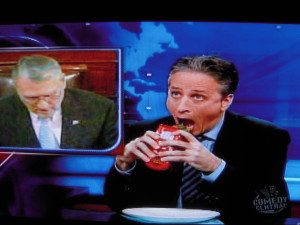E-mails amongst executives of Peanut Corporation of America are shedding fresh light on an often assumed problem: profit is more important than safety, until you get caught.
 In 2009, over 700 people were sickened and nine died from Salmonella Typhimurium linked to peanut paste and butter produced by the Peanut Corporation of America.
In 2009, over 700 people were sickened and nine died from Salmonella Typhimurium linked to peanut paste and butter produced by the Peanut Corporation of America.
An auditor with the Manhattan, Kansas, based American Institute of Baking was responsible for evaluating the safety of products produced by PCA. The peanut company knew in advance when the auditors were arriving. “The overall food safety level of this facility was considered to be: SUPERIOR,” the auditor concluded in his March 27, 2008, report for AIB. State inspectors also found only minor problems.
New disclosures from the Atlanta Journal-Constitution reveal that with a shipping deadline fast approaching, an employee at the Peanut Corporation of America plant in Blakely, Ga., wanted to know what should be done with an order that hadn’t been tested for Salmonella. The email response from the company’s president was succinct.
“(Expletive), just ship it,” Stewart Parnell wrote. “I can’t afford to lose another customer.”
A month later, the same employee had a similar query. This time, Parnell was even more direct.
“SHIP,” he wrote.
Parnell’s words, written seven years ago, will take on new life in an Albany courtroom in the coming weeks as federal prosecutors try to use them and other email messages to send the former peanut executive to prison.
In a trial that started with jury selection Monday and is expected to last two months, the government will argue that Parnell willfully directed his company to sell products that killed nine people and sickened more than 700.
“Seldom does a plant owner or manager knowingly sell a contaminated product,” said Michael Doyle, who directs the University of Georgia’s Center for Food Safety. “And so I think (Peanut Corp.) is being used as a poster child, you might say, letting producers and processors know they can’t do that sort of thing and expect to get away with it, not only in this country but internationally.”
 Parnell famously refused to answer questions in front of a congressional subcommittee, invoking his Fifth Amendment right against self-incrimination even when one committee member held up a jar of products made from the company’s peanuts wrapped in yellow crime tape and asked the disgraced executive if he would eat them.
Parnell famously refused to answer questions in front of a congressional subcommittee, invoking his Fifth Amendment right against self-incrimination even when one committee member held up a jar of products made from the company’s peanuts wrapped in yellow crime tape and asked the disgraced executive if he would eat them.
As the publicity grew, Peanut Corp. filed for bankruptcy and ceased operations.
“Peanut butter is a high-risk product, consumed by elderly people and kids,” Doyle said. “When salmonella gets in a product like that, many people can become seriously ill.”
Bill Marler, a Seattle food safety attorney who represented victims and families affected by the Peanut Corp. products, said he believes the case against Stewart Parnell and his colleagues can be different.
“What makes this case powerful is the company, if you believe the emails and the testing results, made a decision to ship products into interstate commerce knowing that it tested positive for salmonella,” he said. “They would get a positive sample and a negative sample, choose to believe the negative sample and ship it.”
Emails in government court filings — many of them undisclosed previously — depict Parnell and others as willing to gamble with public health to keep sales moving.
